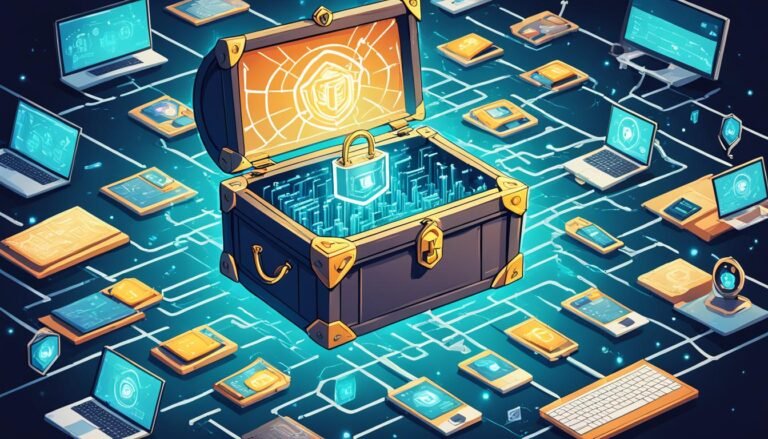Tools That Keep Your Online Data Safe from Prying Eyes
Now more than ever, having the knowledge and skills to protect personal and sensitive information online is crucial. From social media and email accounts to online banking and shopping, we deal with data that could be harvested by cybercriminals or corporations that watch our online footprints.
Statistics indicate that more than 422 million data records were breached in 2024, particularly during the third quarter. This shows that guaranteeing your safety and privacy has never been more important. The good news is that several tools can help you secure and keep your information safe.
Top 7 Tools to Consider for Your Online Privacy
Keeping yourself safe online is simple. It all comes down to staying vigilant and choosing the right tools. However, your activities online determine the level of privacy you need:
1. Virtual Private Networks (VPNs)
Browsing the Internet through unsecured public networks leaves your data vulnerable. This is where a VPN tool becomes a vital necessity. Providers like CometVPN not only just mask your connection. Instead, they also conceal your browsing history from hackers, advertisers, or even your internet service provider.
With the assistance of a VPN, you send and receive data via a secure virtual channel that hides your IP address and uses a private server to redirect your traffic. Thus, details such as your geographical location, the sites you visit, and even the user IDs and passwords you use to log in are concealed at all times.
2. Password Managers
Account security should begin with a strong password. However, given the increasing number of accounts people manage, it may become hard to remember all the different passwords. Thankfully, password managers like 1Password and LastPass save you from this tedious work.
These tools allow you to store and encrypt all your passwords in one vault. This makes complex passwords universal for all accounts, thus minimizing the chances of forgetting them. Many advanced password managers can create a complex password and auto-fill the login information. This typically means there is little to no chance of data phishing.
3. Two-Factor Authentication (2FA)
While strong passwords are an important cybersecurity measure, they are not a standalone solution. Cybercriminals often target login credentials as they perpetrate data breaches or phishing schemes. Multi-factor authentication systems like 2FA provide additional security by combining a password with another validation method, including but not limited to:
- Text codes
- Fingerprints
- Face ID
Since several platforms support 2FA, even if someone steals your password, they cannot log in without the second factor. Popular services such as Google, Facebook, and Apple are big fans of 2FA, ensuring your accounts are safe at all times.
4. Encrypted Messaging Apps
Although email messaging and text messaging are the major communication forms in this century, they do not come without safety risks. To safeguard your exchanges with colleagues and loved ones and keep your information confidential, apps like Signal, WhatsApp, or Telegram offer end-to-end encryption. This helps them give their users peace of mind and make sure that only the intended sender and receiver get the messages.
5. Encrypted Cloud Storage
Today, cloud storage solutions are a popular option for keeping and sharing files online. On the downside, these services are prone to hacking and unapproved access. To protect your data, choose services like Tresorit or Proton Drive built on a cloud but encrypted. These services are decrypted only by the user, making it difficult for hackers to access your data.
6. Privacy-Focused Search Engines
Google, Bing, and similar sites often track your searches, advancement, and region to aid in targeting and segmentation. If you wish to avoid their enduring advertising, consider switching to an alternative search engine such as DuckDuckGo or StartPage. These search engines won’t save users’ search requests. Instead, they keep your data completely anonymous.
7. Antivirus and Anti-Malware Software
Even the mildest internet users can be exposed to cyber threats, so it is imperative to have antivirus and anti-malware applications. Such tools make it possible to check your computer for some latent dangers and harmful programs, notifying you of the potential risks before it is too late. Antivirus software also helps protect from internet scams, which would otherwise trick the user into sharing their sensitive information.
Conclusion
Online privacy is in constant danger, but the right tools can change that. Several tools are available — with VPNs, password managers, message encryption, and private browsers as some of the most widespread. Combining these resources will ensure that any sensitive content won’t be revealed to just anyone, allowing users to browse the Internet and communicate freely.





